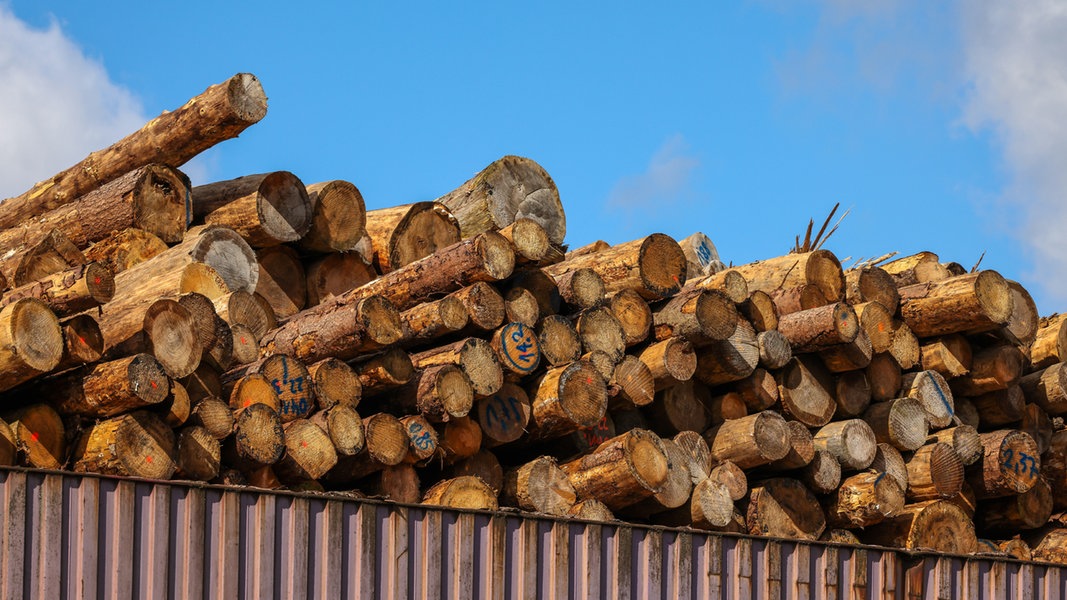As of: April 15, 2024 6:00 a.m
The gas sulfuryl difluoride is helpful for exporting wood because it kills harmful insects. But it is also very harmful to the climate. Environmentalists are calling for the use of alternatives.
Thousands of tons of wood are exported through the port of Hamburg every year – a large part of it in the form of tree trunks. Importing countries like China insist that the wood is free of pests, such as the bark beetle. For this reason, the logs are still treated in Germany by certified companies with a gas that is supposed to kill all insects: sulfuryl difluoride. It is highly toxic and more than 4,600 times more harmful to the climate than CO2.
Harmful wood fumigation: High number of unreported cases suspected
According to the Hamburg Senate, more than 200 tons of sulfuryl difluoride were used in the port of Hamburg in 2019 – this corresponds to the annual CO2 footprint of more than 115,000 Germans.
It is unclear how much sulfuryl difluoride is released into the atmosphere in Germany each year. The official figures from the responsible Federal Office for Consumer Protection and Food Safety (BVL) do not correspond to those of the federal states. The BVL reported consumption of around 150 tons for the whole of Germany in 2019, while the Senate reported consumption of more than 200 tons for Hamburg alone. In addition, not all federal states publish figures. Environmentalists suspect that the number of unreported cases is high.
The process: Wooden trunks are fumigated in containers
The logs are usually placed in the container together with a gas cartridge. The doors are then closed tightly and the gas comes out of the cartridge. After 24 hours of exposure, the doors are opened again, the empty cartridge is removed and the gas escapes into the environment. It is not vacuumed or filtered as there are currently no tried and approved methods for this. The gas is also dangerous for humans, which is why specialists must wear protective clothing when carrying out the so-called fumigation of wood.
Alternatives fail in Germany due to bureaucracy
Alternative gases, which have a significantly lower impact on the climate, are not approved for the treatment of round wood in the EU. According to the BVL, no application for an alternative to sulfuryl difluoride is currently being examined. This is apparently also due to bureaucratic hurdles: obtaining approval is time-consuming and costly, complains Green politician Karl Bär. In addition, only a few institutions are entitled to even submit an application.
Other countries are further ahead: in Serbia and the Czech Republic, phosphine is approved as a fumigant for round wood. However, it is dangerous to use because it is explosive. Other gases such as ethanedinitrile, which is already approved for the treatment of foods such as coffee or cocoa, are also being discussed.
Further information
The health of the forests in Mecklenburg-Western Pomerania is not going well. The status recording describes the difficulties. more
According to experts, the beetles could multiply en masse. In the national park, 90 percent of the old spruce stands are dead. more
8 Min
Due to droughts in summer and weather extremes, tree death has become an issue again. Questions about this to Marcus Lindner from the European Forest Institute. 8 mins
This topic in the program:
Market | April 15, 2024 | 8:15 p.m
